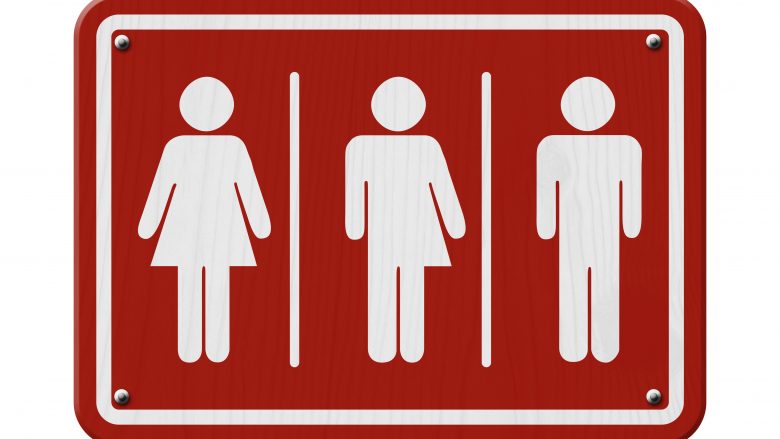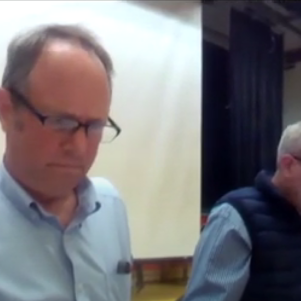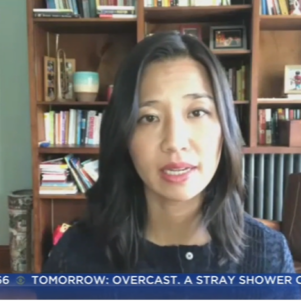Charlie Baker ‘Inclined To Support’ Conversion Therapy Ban
By NBP Staff | March 7, 2019, 17:11 EST

Governor Charlie Baker said he’s “inclined to support” a ban on conversion therapy for minors in Massachusetts, which would make it illegal for a licensed therapist to try to help a minor change sexual orientation or gender identity through counseling.
The governor, a Republican, spoke to reporters Thursday afternoon after a press conference on road safety, according to State House News Service.
He said he is aware that there are two different conversion therapy bills that a legislative committee voted earlier this week to recommend, and he declined to get into the details. But he said he generally supports the idea.
“They’re different, so I’m not going to speak to either one of them, but if a conversion therapy bill gets to my desk and we don’t see any other issues with it, it’s something we’d be inclined to support,” Baker said Thursday, March 7, using his hands to put air quotes around the words “conversion therapy,” according to State House News Service.
The comment leaves a little wiggle room.
Supporters of the ban are anxious to get it to the House floor for a vote, mindful that two incompatible versions of the legislation didn’t get straightened out until late last legislative session. The Massachusetts Senate and House of Representatives eventually approved a version of the bill, but legislators didn’t have enough time to enact it before the legislative session ended at the end of July 2018.
Supporters of the ban say conversion therapy doesn’t work, tries to fix something that isn’t broken, and leaves patients wounded and worse off than they were before.
Opponents of the ban say conversion therapy ought to be an option for parents and children who want it because homosexuality or transgender identity conflicts with their religious beliefs or hopes for the future, and they point to claims that at least in some cases it has worked.
Forty-five people testified for close to three hours Tuesday, March 5 before the Massachusetts Legislature’s Joint Committee on Children, Families, and Persons With Disabilities, including experts on either side. Several former conversion therapy patients testified, as well, some saying their treatment failed and damaged them emotionally, and others saying it worked and led to a happier life.
A sponsor of the House version of the bill, state Representative Kay Khan (D-Newton), co-chairman of the Joint Committee on Children, Families and Persons With Disabilities, said she wants the state Legislature to move fast.
“That’s my hope. Better to get it over sooner rather than later, in my opinion, because just having it out there for a long period of time, there are a lot of naysayers out there,” Khan told State House News Service on Tuesday.
The House version, called H. 140, would prohibit licensed therapists from offering conversion therapy for patients 17 and younger, on pain of losing their license to practice.
The Senate version, called S. 70, would do the same, but it would also require parents to be reported to the state’s social-services agency for committing child abuse if they bring a son or daughter to conversion therapy. So-called “mandated reporters” such as teachers, doctors, and nurses would be required to inform the Massachusetts Department of Children and Families if they learn that a minor 17 and younger is going to conversion therapy.
Attempting to engage in conversion therapy as a parent would appear in the same list in state law (Massachusetts General Laws Chapter 119, Section 51A) as sexual abuse, neglect through malnutrition, and human trafficking.
H. 140 has 117 sponsors. Almost all are Democrats. No Republican state senators are among them. The only Republican sponsors in the House are state Representative David Vieira (R-Falmouth) and state Representative Timothy Whelan (R-Brewster).
S. 70 has six sponsors. All are Democrats.
The House passed a version similar to H. 140 last legislative session, and the Senate passed a version similar to S. 70 last legislative session. Both chambers ended up passing a bill substantially the same as the House version in late July 2018, but the legislative session ran out before they could give it final approval, so the bill died without making it to Governor Baker’s desk.











